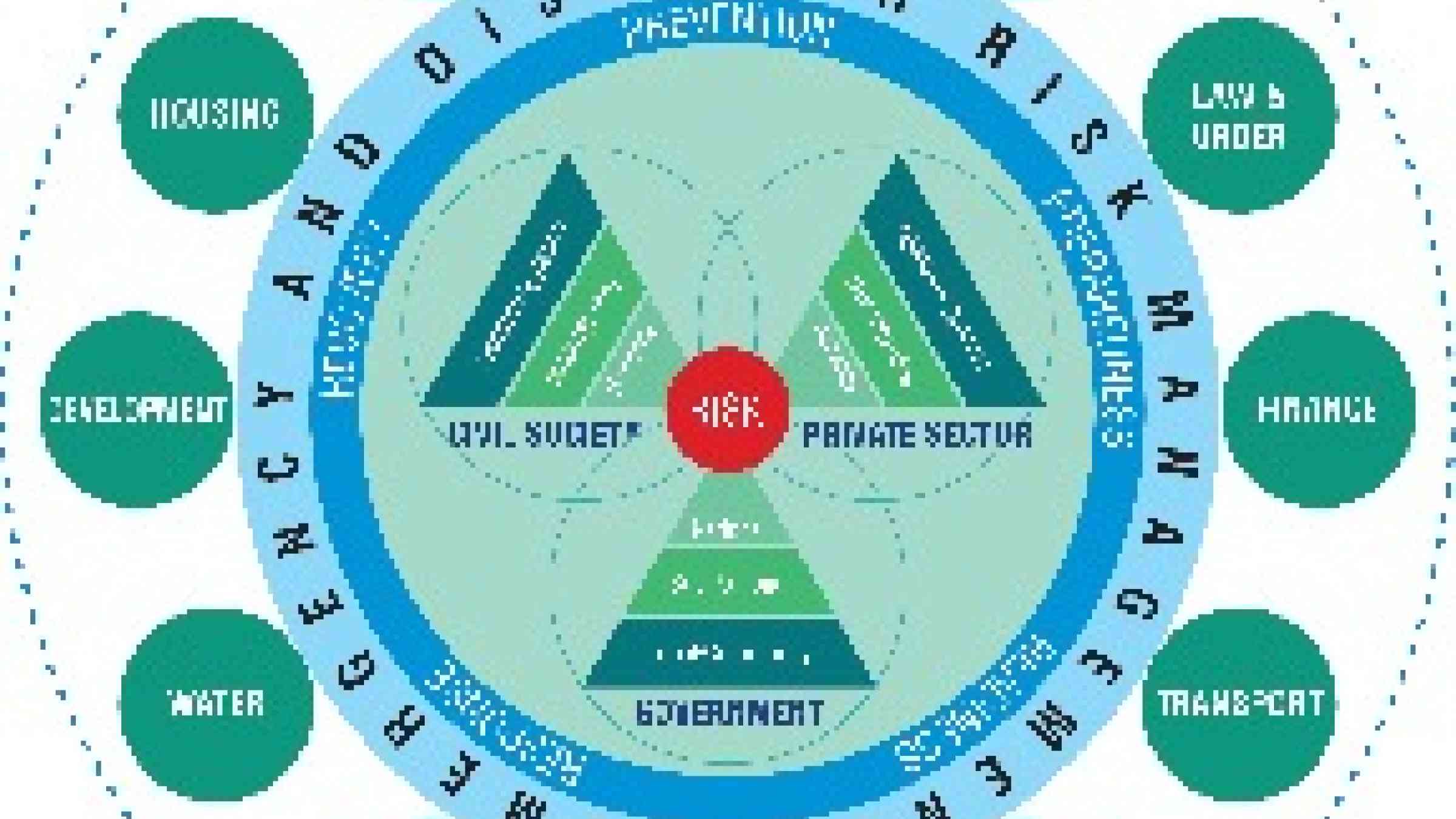Integrating biological hazards in national disaster management policy: a call for whole of society action
The global experience of the COVID-19 pandemic has demonstrated that whole-of-society action supported by effective leadership and governance is required to manage the systemic risks associated with biological hazards. The pandemic has challenged risk governance in countries and catalyzed changes and innovations in policies, legislation, coordination mechanisms, financing and effective risk management that have significant implications for future disaster risk reduction policy and practice. Collaborative partnerships, good practices, lessons learned and evidence generated during COVID-19 will need to be institutionalized in order to strengthen systems and capacities to manage risks of disease outbreaks and other types of emergencies.
Panellist will discuss how the experience and insights gained from the pandemic can help leaders, managers, policy makers, planners and practitioners on applying all-hazards, whole-of-society and risk management approaches to national and local disaster risk management strategies. Emphasis will be placed on country efforts to address the needs of the most vulnerable populations and ensure that no one is left behind.
Session Objectives
- Promote effective risk governance, partnerships and collaboration on disaster risk management within and across sectors at all levels of society
- Share experience and good practices on the integration of biological and other priority hazards in national and local strategies and plans for disaster risk reduction
- Discuss how the governance, innovations and lessons from COVID-19 can contribute to all-hazard, whole of society risk management policies, plans and practice at global, national, local and community levels
- Contribute to the knowledge base on managing complex and interconnected risks
- Discuss intersectoral approaches in reducing risk and building resilience
- Identify best practices to accelerate the implementation of the Sendai Framework through policy making, research and innovation
Registration
Moderator
- Prof. Virginia Murray, Head of Global Disaster Risk Reduction, UK Health Security Agency
Speakers
- Mr. Robert Kwame Agyarko, Lead Advisor, Outbreaks and Epidemics, African Risk Capacity
- Dr. Elizabeth Newnham, Senior Lecturer and Program Lead, Global Resilience, Curtin University, Perth, Australia and Research Fellow, Harvard University, USA
- Dr. Claudia Herrera, Executive Secretary, CEPREDENAC.
Documents
Learn more
Policy and governance case studies will be discussed to show how good practices, innovations and evidence generated during COVID-19 can be systematically leveraged to strengthen risk governance, policies and actions for the management of health emergencies and disasters.
Where do we stand
The Sendai Framework for Disaster Risk Reduction 2015–2030 places health at the centre of disaster risk management and emphasizes the need for multi-hazard risk management approaches that address biological hazards such as pandemics and epidemics alongside natural, environmental and technological hazards. The Sendai Framework calls for better integration of health into disaster risk management particularly referring to the International Health Regulations and recognizes the vital interface between disaster risk management and achievement of health for all. A risk-informed, whole of society approach to the management of risks is core to the Sendai Framework and to WHO’s Health Emergency and Disaster Risk Management Framework. However, as the COVID-19 pandemic has revealed, many countries’ policies for health emergencies and disasters are not fully aligned across sectors which frequently has implications for whole-of-society and intersectoral approaches to risk management. Integrating risks associated with biological hazards, including pandemics, into disaster risk reduction planning at the national and local levels has been identified as a priority action to strengthen resilience at the national level.
Session guiding questions
- What roles have whole-of-society governance played in managing the COVID-19 pandemic?
- What are the recommended actions for whole-of-society policies to manage systemic disaster risks including those from biological hazards?
- How have lessons and scientific evidence been generated from diverse COVID-19 experiences, e.g. different country contexts, across sub-populations in countries?
- How have strategies to ensure “no one is left behind” been employed in the COVID-19 including compound effects of concurrent emergencies, displacement and conflict for vulnerable populations?

Agenda
Location
BNDCC 2-Ground Floor
Online access
Participation
Open to those registered for the conferenceInterpretation
PT, ESDetails
Contact
Dr. Qudsia Huda, hudaq@who.int Dr Kai Von Harbou, vonharbouk@who.int Mrs Elleanie Tewolde, tewoldee@who.int